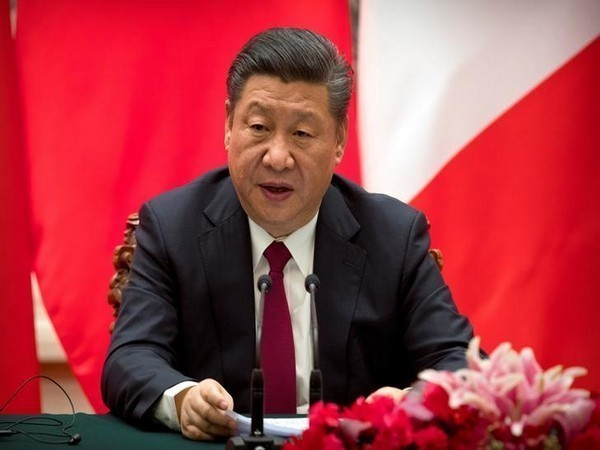
Xi Jinping’s idea of ‘lovable’ China raises eyebrows

Beijing [China], June 3 (ANI): After years of China’s growing aggressiveness towards other countries through warnings and insults, President Xi Jinping said that officials should create a lovable and respectable image of the country, which has raised more than a few skeptical eyebrows among China watchers.
In his remarks at a Politburo meeting on Monday as quoted by Xinhua news agency, Xi said: “We must pay attention to grasp the tone, be both open, confident and humble, and strive to create a credible, lovable, and respectable image of China.”
Adam Taylor for Washington Post writes that China’s international relations have frayed significantly over the past years, with issues like the repression of the Uyghur ethnic minority in Xinjiang, aggressive rhetoric and action against Taiwan, India and Hong Kong activists and relentless obfuscation over the coronavirus darkening China’s global image.
Much of China’s hyperaggressive diplomacy was led by a team of ‘wolf warriors’, including Foreign Ministry spokesman Zhao Lijian, which evidence suggests was not winning friends.
In a Pew Research Center survey of 14 countries released in October, a majority of respondents gave a negative appraisal of China. Negative views reached decade highs in nine of those countries.
Moreover, calls for countries to boycott the Beijing 2022 Winter Olympics show no sign of dissipating over severe human rights abuses in Xinjiang and China’s vaccine diplomacy efforts have been complicated by reports of low efficacy and new COVID-19 waves.
According to Tufts University’s Sulmaan Wasif Khan, the wolf warriors had disrupted China’s “grand strategy” and posed a real domestic risk, reported Washington Post. “The real danger is that once toxin has spread through the system, there is no knowing where it will end,” he said.
Last month, research from Yaoyao Dai and Luwei Rose Luqiu published by Washington Post’s The Monkey Cage last month found that an average of 10 percent of Foreign Ministry speeches were “combative and hostile” before 2012. That increased to more than a quarter in 2019 and 2020.
When US President Joe Biden’s officials first met with their Chinese counterparts this March, they received a 16-minute tirade criticising America and accusing US officials of speaking from a position of hypocrisy and weakness.
During the COVID-19 outbreak, Zhao spread baseless theories that the US military could have been behind the coronavirus pandemic that first emerged in Wuhan, China — a notion so bold that some other Chinese diplomats seemed to distance themselves from it, writes Taylor.
However, increasing international pressure on the origins of COVID-19 has highlighted that China has something to hide. Moreover, China’s relations with the European Union (EU) have also worsened amid disputes over Xinjiang, effectively ending plans for a trade and investment treaty.
In their research, Dai and Luqiu found that the wolf warriors’ tough talk was often a substitute for tough action, leading nationalistic netizens to proclaim victory and appealing to the poorer countries.
The rude tweets, along with Xi’s policies of repression in Xinjiang and Hong Kong or the systematic embrace of secrecy and paranoia that may make finding the cause of the coronavirus impossible that disrupt its relations abroad.
Adam Taylor further opined that keeping a tighter leash on the wolf warriors may not spell better international relations for China, unless significant policy changes are in place. (ANI)

















POST COMMENTS (0)